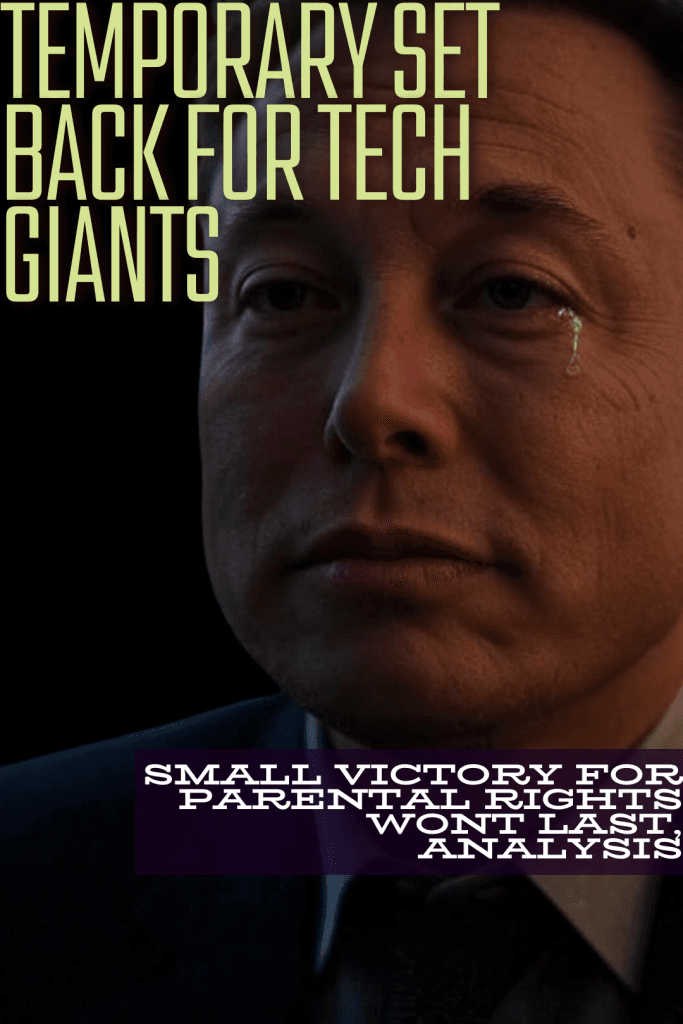Supreme Court refuses to block Mississippi law requiring social media companies to obtain parental consent for minors
In a temporary but significant setback to Big Tech’s relentless campaign to sideline parents from their children’s digital lives, the Supreme Court on Thursday refused to block Mississippi’s groundbreaking parental consent law, dealing a procedural blow to tech titans Elon Musk and Mark Zuckerberg.
The high court’s decision allows Mississippi to enforce legislation that requires social media platforms—including Musk’s X, Zuckerberg’s Facebook and Instagram, and Google’s YouTube—to verify users’ ages and obtain explicit parental permission before allowing minors to create accounts. For the first time in years, parents may actually have a say in whether their children can access platforms that have been linked to depression, anxiety, self-harm, and suicide among teens.
Big Tech’s War on Parental Authority
The legal challenge, spearheaded by NetChoice (a lobbying group representing the Silicon Valley elite), represents the latest front in Big Tech’s systematic effort to eliminate parental oversight of children’s online activities. NetChoice represents some of the country’s most high-profile technology companies, including Google, which owns YouTube; Snap Inc., the parent company of Snapchat; and Meta, the parent company of Facebook and Instagram.
For years, these platforms have built their business models around capturing young users as early as possible, often without meaningful parental knowledge or consent. The Mississippi law threatens to disrupt this profitable pipeline by empowering parents to actually control when and how their children engage with social media.
In one case, a 16-year-old Mississippi boy committed suicide after an Instagram user posing as a female initiated a sexual encounter and then demanded a $1,000 payment under threat of exposing their exchanges on the internet. This tragic case exemplifies the real-world consequences of platforms’ resistance to parental involvement in protecting children online.
The Free Speech Smokescreen
Predictably, the tech giants wrapped their opposition in First Amendment rhetoric, claiming the law violates free speech rights. But this constitutional argument rings hollow when examined closely. Social media companies fighting the Mississippi law and others like it argue they violate the free speech rights of minors who can’t get parental approval or don’t want to verify their age.
This framing reveals the tech industry’s true agenda: positioning children’s desire to circumvent parental oversight as a constitutional right. The companies are essentially arguing that a 13-year-old’s wish to hide their social media activity from parents outweighs both parental authority and child safety concerns.
The Hypocrisy of “Technical Impossibility”
Perhaps most galling is the tech industry’s claim that age verification poses insurmountable technical challenges. These are the same platforms that routinely collect vast troves of biometric data—from facial recognition to voice patterns to behavioral analytics—sophisticated enough to permanently ban users across multiple accounts and devices. If Zuckerberg’s Meta can use advanced algorithms to identify and eliminate banned users who attempt to create new accounts, and if Musk’s X can deploy similar technology to enforce permanent suspensions, then surely these platforms possess the technical capability to verify whether a user is 13 or 30 years old.
The companies’ sudden claims of technical limitations ring particularly hollow given their demonstrated ability to comply with age verification requirements in other contexts, such as the recent Texas law requiring age verification for pornographic websites, which the Supreme Court upheld. Their resistance isn’t about capability—it’s about preserving a business model that depends on unfettered access to young users.
Even Justice Brett Kavanaugh, while expressing skepticism about the law’s ultimate constitutionality, recognized that NetChoice had not shown the need to block the law at an early stage of the litigation. Kavanaugh wrote that NetChoice had “demonstrated that it is likely to succeed on the merits” when the case reaches a final conclusion, but noted they had not shown immediate harm from allowing the law to take effect during litigation.
The Supreme Court’s refusal to intervene, while likely temporary, represents a rare procedural victory for parental rights advocates who have watched Big Tech successfully delay or overturn similar protections in other states. Even a temporary enforcement period may provide valuable data about whether these protections can coexist with legitimate platform operations.
What the Law Actually Does
The Mississippi law requires all users to verify their ages before using common social media sites ranging from Facebook to Nextdoor and mandates that a social media platform obtain “express consent” from a parent or guardian of a minor before a child can open an account.
The law also requires platforms to make “reasonable efforts” to ensure minors are not exposed to harmful content—a provision that directly challenges the platforms’ current practice of using algorithmic engagement to keep young users scrolling, regardless of content appropriateness.
Companies could be hit with $10,000 penalties for violating the law, finally creating meaningful financial consequences for platforms that have long operated with impunity when it comes to child safety.
A Growing Movement
Mississippi’s victory is part of a broader trend that has tech executives clearly worried. Many other states – both blue and red – have enacted similar requirements in recent years amid growing concerns over privacy and the safety of young people online. NetChoice has filed similar lawsuits in Arkansas, Florida, Georgia, Ohio and Utah.
The fact that both conservative and liberal states are converging on the need for parental consent requirements suggests this isn’t a partisan issue—it’s about protecting children from predatory business practices that prioritize engagement over wellbeing.
Mississippi officials said the state is responding to high-profile reports of “sextortion” and other online crimes. The state’s response stands in stark contrast to the tech industry’s approach, which has consistently fought against any meaningful parental involvement or oversight.
The Stakes
While this decision may ultimately prove temporary—with Justice Kavanaugh’s concurrence suggesting the law faces an uphill constitutional battle—it represents more than just a procedural victory for parental rights advocates. For the first time in years, a major social media regulation will actually take effect, providing real-world data about whether such protections can function alongside legitimate platform operations.
Mississippi told the Supreme Court in a brief urging the court to leave the law in place that “The act requires what any responsible covered platform would already do: make ‘commercially reasonable’ efforts to protect minors – not perfect or cost-prohibitive efforts, but efforts of reasonable care based on a platform’s resources.”
The fact that such basic protections are controversial reveals just how far the tech industry has strayed from any reasonable standard of responsibility toward children.
As other states watch Mississippi’s law take effect—however briefly—the tech giants face a new reality: even temporary enforcement of parental consent requirements may demonstrate that their doomsday predictions about technical impossibility and constitutional violations are largely manufactured. For Musk and Zuckerberg, this Supreme Court decision marks a rare but meaningful defeat in their ongoing war against parental authority, even if the ultimate battle remains ahead.




